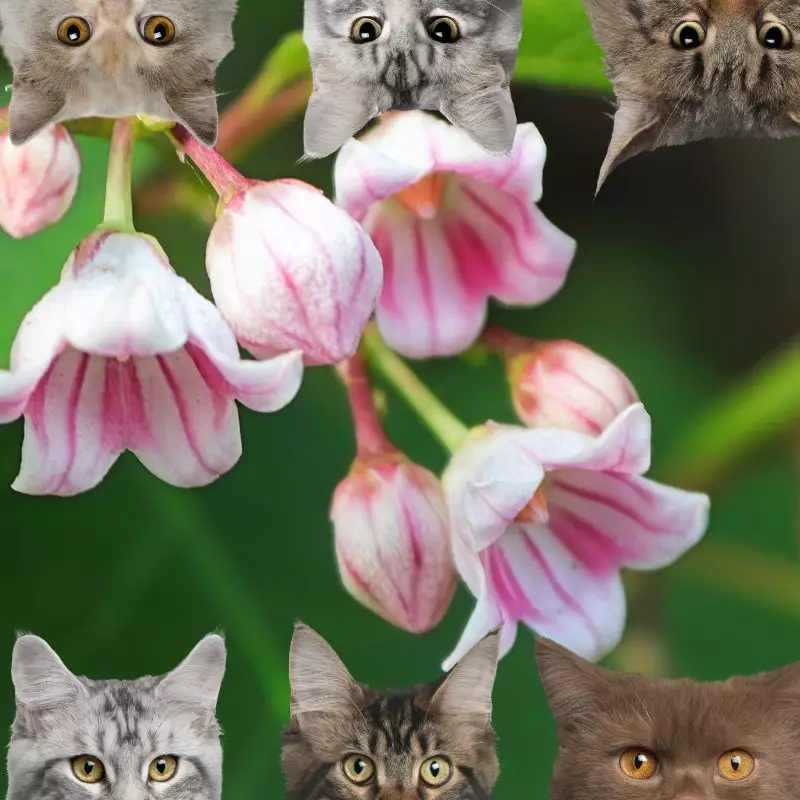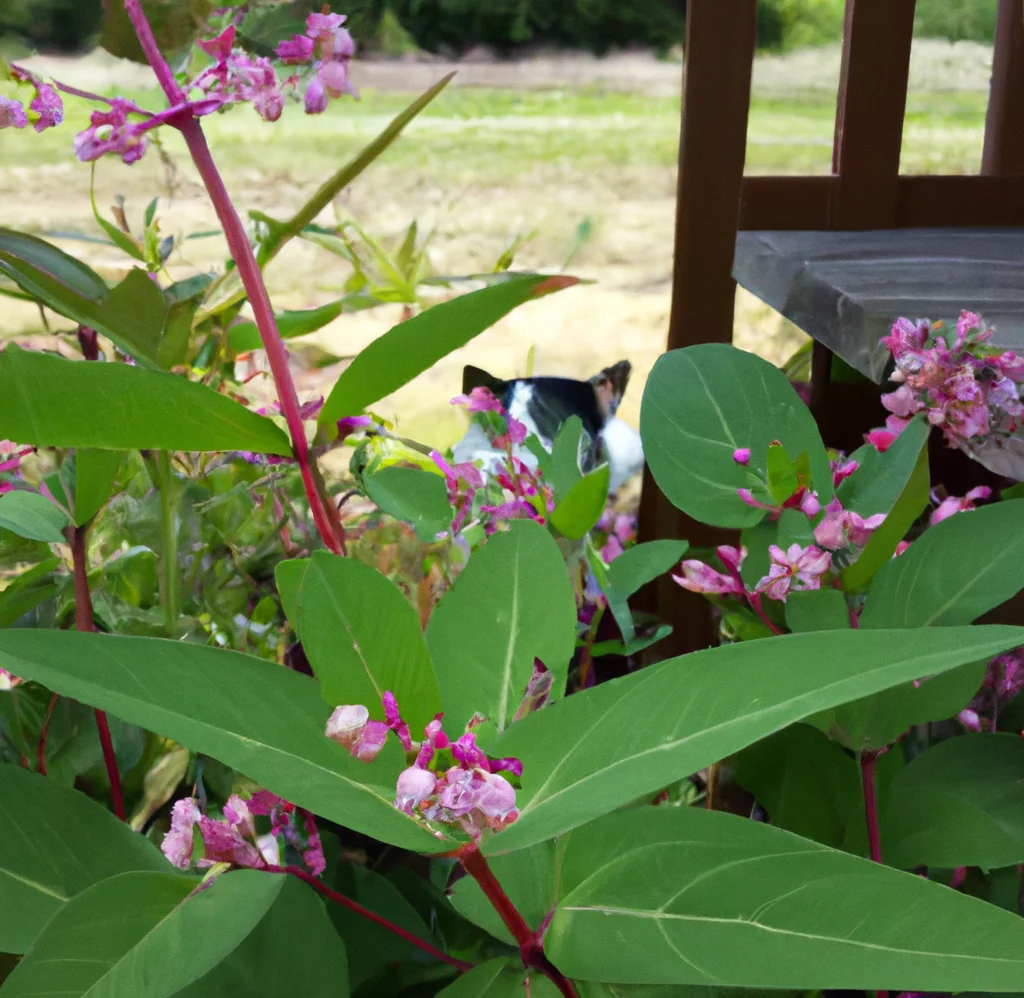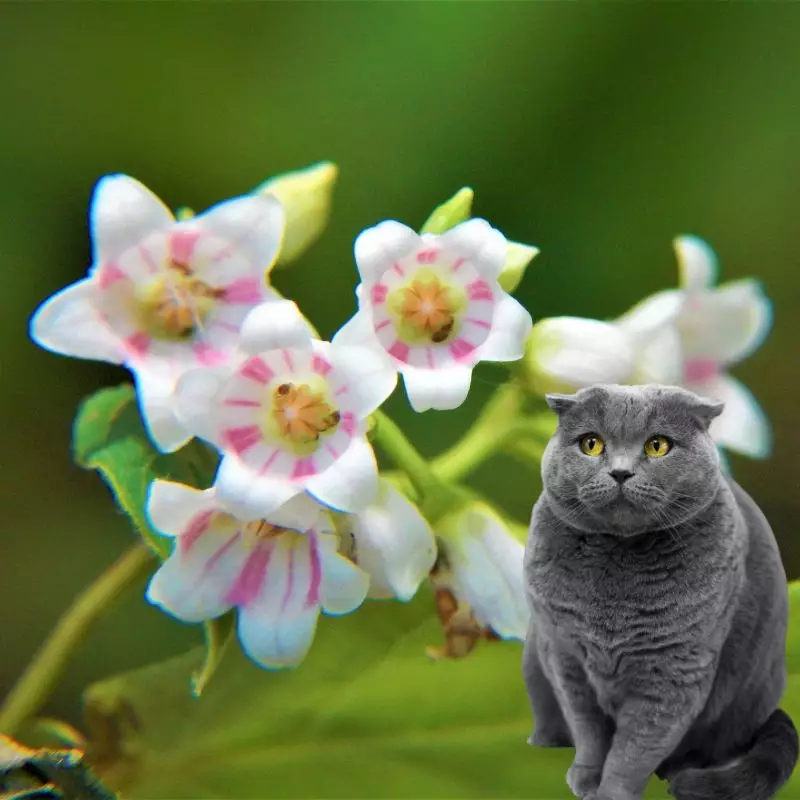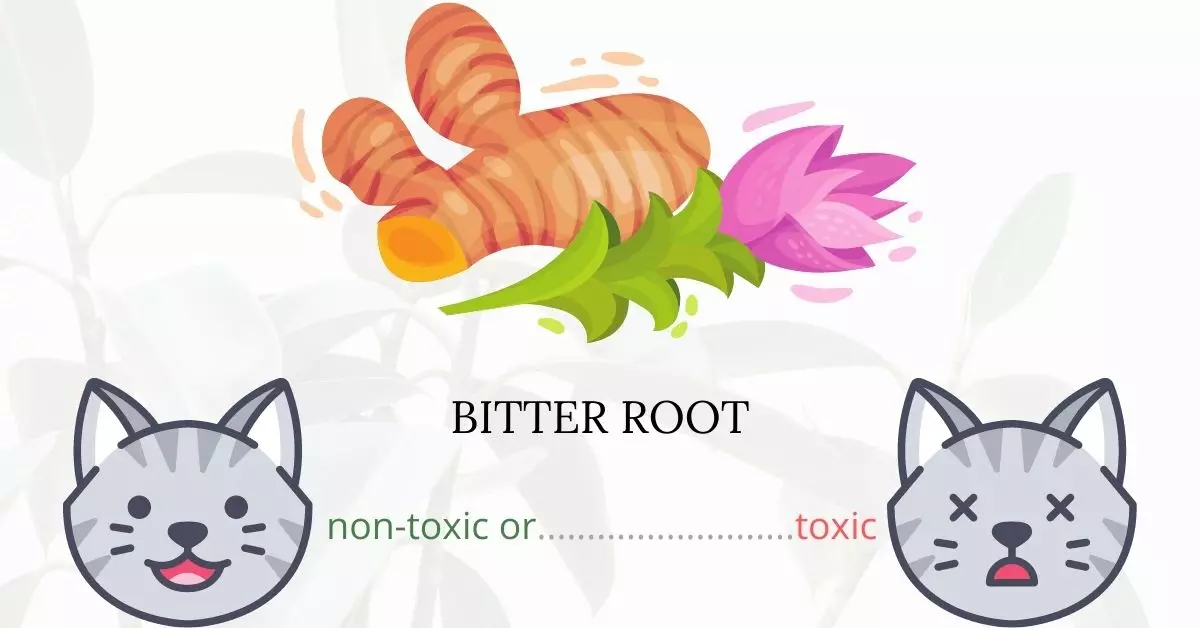Absolutely, Bitter Root, also known as Dogbane Hemp or Indian Hemp, is toxic to cats. This perennial flowering herb contains harmful amounts of glycoside-type chemicals, namely cymarin, cyntoxin, and strophanthidin. Exposure to these toxins can lead cats to experience symptoms such as diarrhea, weakness, and constipation, among others.
This article has been meticulously written in collaboration with a team of experienced DVMs (doctors of veterinary medicine). Through their invaluable insights, we are able to provide readers with accurate and up-to-date information about the potential risks associated with various plants, focusing on Bitter Root in this case. Additionally, to ensure the reliability of our information, we have also referred to high-authority websites such as ASPCA and PetMD in our research on every plant discussed.
Clinical Signs of Bitter Root Poisoning in Cats

When cats come into contact with, inhale the scent of, or ingest the Bitter Root plant, they are exposed to its toxic glycoside-type chemicals, which can lead to a range of health issues. These compounds bear similarities to those used medicinally to treat heart patients, making them capable of inducing cardiac and circulatory disturbances in felines. Here’s a breakdown of the symptoms and their underlying causes:
- Diarrhea (with or without blood): The plant’s toxins can irritate the gastrointestinal tract, leading to inflammation and subsequent diarrhea. The presence of blood indicates severe irritation or damage.
- Slow heart rate and Arrhythmia (irregular heart rate): As mentioned, the compounds in Bitter Root are similar to cardiac medications. When ingested by cats, these chemicals can slow down the heart rate and disrupt its regular rhythm, causing potential arrhythmia.
- Weakness: Reduced circulation due to the heart’s compromised functioning can lead to generalized weakness as the body’s muscles and organs receive less oxygen and nutrients.
- Cold limbs: Impaired circulation, stemming from the heart’s weakened state, often results in reduced blood flow to the extremities. This can make the cat’s limbs feel cold to the touch.
- Bradypnea or slow breathing: A compromised circulatory system can impact the respiratory system as well. When the heart is affected, the lungs may not receive a sufficient blood supply, leading to slower and shallower breathing patterns.
Awareness of these symptoms is crucial for cat owners, as early detection and intervention can make a significant difference in the outcome for the affected feline.
First Aid and Treatment of Bitter Root Poisoning in Cats

Because just a small amount of bitter root is swallowed, most occurrences of bitter root poisoning in cats are fairly moderate. Since the plant is so fibrous, it is tough to eat for animals, including cats. Furthermore, as the name implies, the plant is bitter and thus unappealing. As a result, most animals ignore the plant, and only a few swallows enough to become seriously intoxicated.
The usual treatment of poisoning in cats will be provided by the veterinarian. This includes vomit induction and fluid therapy. The vet may also administer activated charcoal, and atropine depending on the severity of your cat’s condition. Other drugs and medications that can ease the symptoms may be also prescribed by the vet.
Recovery from Bitter Root Poisoning in Cats

Cats who suffered from Bitter Root poisoning recuperate quickly as long as he or she was given immediate medical attention. In some rare severe cases, there is a chance that the cat will suffer from long-term liver damage.
Consult your veterinarian about your cat’s post-treatment care, and make sure to follow his or her directions carefully to help your cat recover quickly. Your veterinarian may urge you to give your cat more fluids and make dietary modifications. While your cat is healing from the poisoning event, keep him warm and comfortable inside your home and limit his or her activity.
Prevention of Bitter Root Poisoning in Cats
Ensure your cats’ safety inside your house by using cat play fences or cat houses. Keep them busy and happy indoors to minimize their stay outside your home and prevent them from straying far from your home. Remove bitter roots in your garden or yard if you have them. If bitter roots are grown in your area, make sure that your cat will not visit the place again to avoid poisoning incidents from happening again.
If you love plants but have cats at home, check out these lists:





